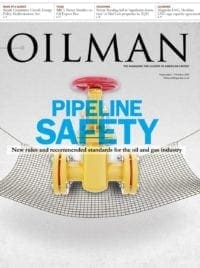The American Petroleum Institute (API) in comments submitted to the Bureau of Safety and Environmental Enforcement (BSEE) cautioned that the unintended consequences of some elements of the BSEE’s proposed rule on blowout preventer systems and well control “could make offshore operations less safe.”
In a July 17 statement, Erik Milito, API upstream group director, said that certain aspects of the rule, if not fixed, could have unintended consequences that increase the risk to people and the environment.
Comments were due on July 16 for BSEE’s proposed rule on Oil and Gas and Sulphur Operations on the Outer Continental Shelf – Blowout Preventer Systems and Well Control.
BSEE on April 17 published in the Federal Register the notice of proposed rulemaking, which is intended to consolidate equipment and operational requirements that are common to other subparts pertaining to offshore oil and gas drilling, completions, workovers and decommissioning.
According to the notice, the proposed rule would focus on blowout preventer requirements, including incorporation of industry standards and revision of existing regulations. In addition, the proposed rule would include reforms in the areas of well design, well control, casing, cementing, real-time well monitoring and subsea containment based on investigations of the Deepwater Horizon incident.





